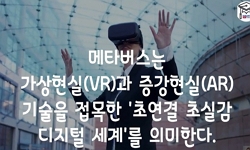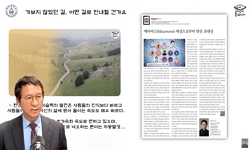This study developed virtual geographic field trip learning content based on drone mapping technology within a metaverse space and applied it to elementary social studies education to analyze its educational effectiveness. The purpose of this study wa...
http://chineseinput.net/에서 pinyin(병음)방식으로 중국어를 변환할 수 있습니다.
변환된 중국어를 복사하여 사용하시면 됩니다.
- 中文 을 입력하시려면 zhongwen을 입력하시고 space를누르시면됩니다.
- 北京 을 입력하시려면 beijing을 입력하시고 space를 누르시면 됩니다.
https://www.riss.kr/link?id=A109532241
- 저자
- 발행기관
- 학술지명
- 권호사항
-
발행연도
2024
-
작성언어
Korean
- 주제어
-
KDC
374
-
등재정보
KCI등재
-
자료형태
학술저널
- 발행기관 URL
-
수록면
25-43(19쪽)
- DOI식별코드
- 제공처
-
0
상세조회 -
0
다운로드
부가정보
다국어 초록 (Multilingual Abstract)
This study developed virtual geographic field trip learning content based on drone mapping technology within a metaverse space and applied it to elementary social studies education to analyze its educational effectiveness. The purpose of this study was to design a metaverse environment using data collected through drone mapping, allowing learners to engage in self-directed exploration and learning. The study focused on the 6th-grade social studies curriculum, specifically the theme of “Environmental Protection and Sustainable Development.” Key factors such as academic achievement, spatial thinking, problem-solving ability, interactivity, and learning satisfaction were measured. The results showed that learning with drone mapping-based metaverse environments positively impacted students' academic achievement and spatial thinking. Notably, middle-achieving students demonstrated significant improvement, and the study highlighted the importance of self-directed learning experiences. Collaborative interactions in the metaverse space also enhanced student motivation and problem-solving skills, leading to high engagement and learning satisfaction. This study suggests that integrating drone mapping with metaverse technology has the potential to foster creative thinking and real-world problem-solving skills in learners.
동일학술지(권/호) 다른 논문
-
AI편향 시대에 ‘유연한 편향성’ 함양을 위한 사회과 수업 실천
- 한국사회과교육연구학회
- 박기범(Park, Keeburm)
- 2024
- KCI등재
-
2022 개정 교육과정의 교과별 미디어 리터러시 교육 내용 분석 및 사회과 미디어 리터러시 교육의 방향
- 한국사회과교육연구학회
- 송미리(Song, Miri)
- 2024
- KCI등재
-
문화경관(Culture landscape)으로서 광주천 다리의 의미 탐색
- 한국사회과교육연구학회
- 송하인(Song, Ha In)
- 2024
- KCI등재
-
MYP 개인과 사회 관련 개념과 2022 개정 사회과 교육과정 간 연계성 분석: 중학 사회-2 과정을 중심으로
- 한국사회과교육연구학회
- 김진영(Kim, Jin-Young)
- 2024
- KCI등재





 KCI
KCI DBpia
DBpia






